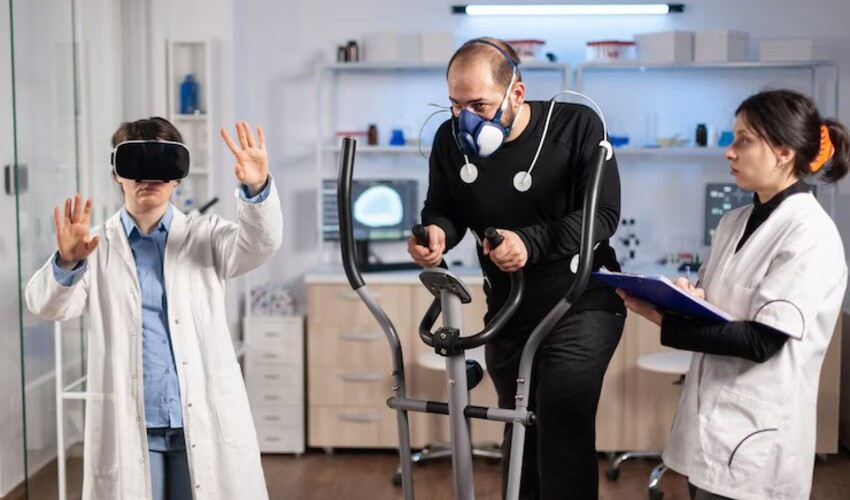Physician virtual assistants are digital tools created to facilitate doctors in workflow management, administrative tasks, and patient communication. They can help in offering patient education, managing medical records, and scheduling appointments. This allows physicians to concentrate more on direct patient care.
Incorporating advanced machine learning and advanced artificial intelligence enables PVAs to analyze data and offer insights that assist physicians in making informed decisions. This ultimately leads to enhanced patient care quality.
Introduction
The healthcare industry is evolving rapidly. Therefore, medical practices are finding unique techniques to enhance efficiency, decrease costs, and enhance patient care. One solution that is attaining attention is the integration of physician-virtual assistants into medical practices.
Here are some techniques PVAs are changing the future of healthcare:
Improved Patient Engagement
PVAs can assist medical practices enhance patient engagement by offering customized communication and support. They can:
- Respond to patient concerns and inquiries
- Send reminders and schedule appointments
- Offer medication reminders and adherence support
- Provide customized health education and advice
Organized Clinical Workflows
PVAs can automate routine administrative tasks. This frees up the clinicians to concentrate on high-value tasks. They can:
- Offer immediate clinician decision support
- Coordinate referrals and care transitions
- Manage prescription renewals and refills
- Help with charting and documentation
Enhanced Access to Care
PVAs can assist in expanded care access, especially for patients in underserved and remote areas. They can:
- Offer virtual follow-ups and consultations
- Do remote monitoring and tracking
- Provide telehealth support and services
- Improve patient access to expert care
Decreased Administrative Burden
PVAs can eliminate administrative burdens on clinicians. This allows them to concentrate on patient care. They can:
- Offer data entry and reporting support
- Help with approvals and prior authorization
- Manage insurance and billing claims
- Manage registration and patient intake
Improved Data Analysis and Insights
PVAs can help medical practices leverage data analytics to inform clinical decision-making. They can:
PVAs can assist medical practices in relying on data analytics to inform clinical decision-making. They can:
- Improve clinical trial support and research
- Facilitate analytics and population health management
- Offer insights on patient results and quality metrics
- Data analysis and trend identification
Advantages of Physician Virtual Assistants
- Enhanced Patient Satisfaction: It provides improved patient support and engagement.
- More Efficiency: Organized clinical workflows and decreased administrative burden.
- Improved Access To Care: It offers expanded access to care, especially for underserved and remote areas.
- Enhanced Data Insights: It facilitates enhanced patient outcomes and data-driven decision-making.
- Cost Savings: Decreased administrative costs and enhanced resource allocation.
The Future Landscape Physician Virtual Assistants
Shortly, the role of physician virtual assistant will expand significantly. As the technology continues to evolve, PVAs will probably become more sophisticated, using features like predictive analytics and natural language processing to serve patients and physicians in a better way.
In addition, the adoption of virtual assistants is expected to increase because more healthcare practices are now realizing the significance of these tools. This will lead to an increasingly efficient and streamlined healthcare system that prioritizes patient-focused care.
Conclusion
After viewing the discussion above, it can be said that physician virtual assistants are changing the future of medical practices. By improving patient engagement, organizing clinical workflows, enhancing access to care, decreasing admin burden, and offering data insights, PVAs are changing the healthcare that is offered. As the healthcare industry continues to transform, PVAs will play an increasingly significant role in shaping the future of medical practices.
Frequently Asked Questions (FAQs)
What are physician virtual assistants?
Physician Virtual Assistants (PVA), remote healthcare staff, are a medium that provides administrative, clinical, and technical support to physicians, medical practices, and health organizations. They work in virtually any environment, creating secure online platforms to work across a variety of tasks and responsibilities.
What are the types of tasks PVAs can perform?
· Administrative tasks
· Clinical tasks
· Technical tasks
What are the benefits of PVAs?
· Flexibility
· Cost savings
· Enhanced patient satisfaction
· More efficiency

